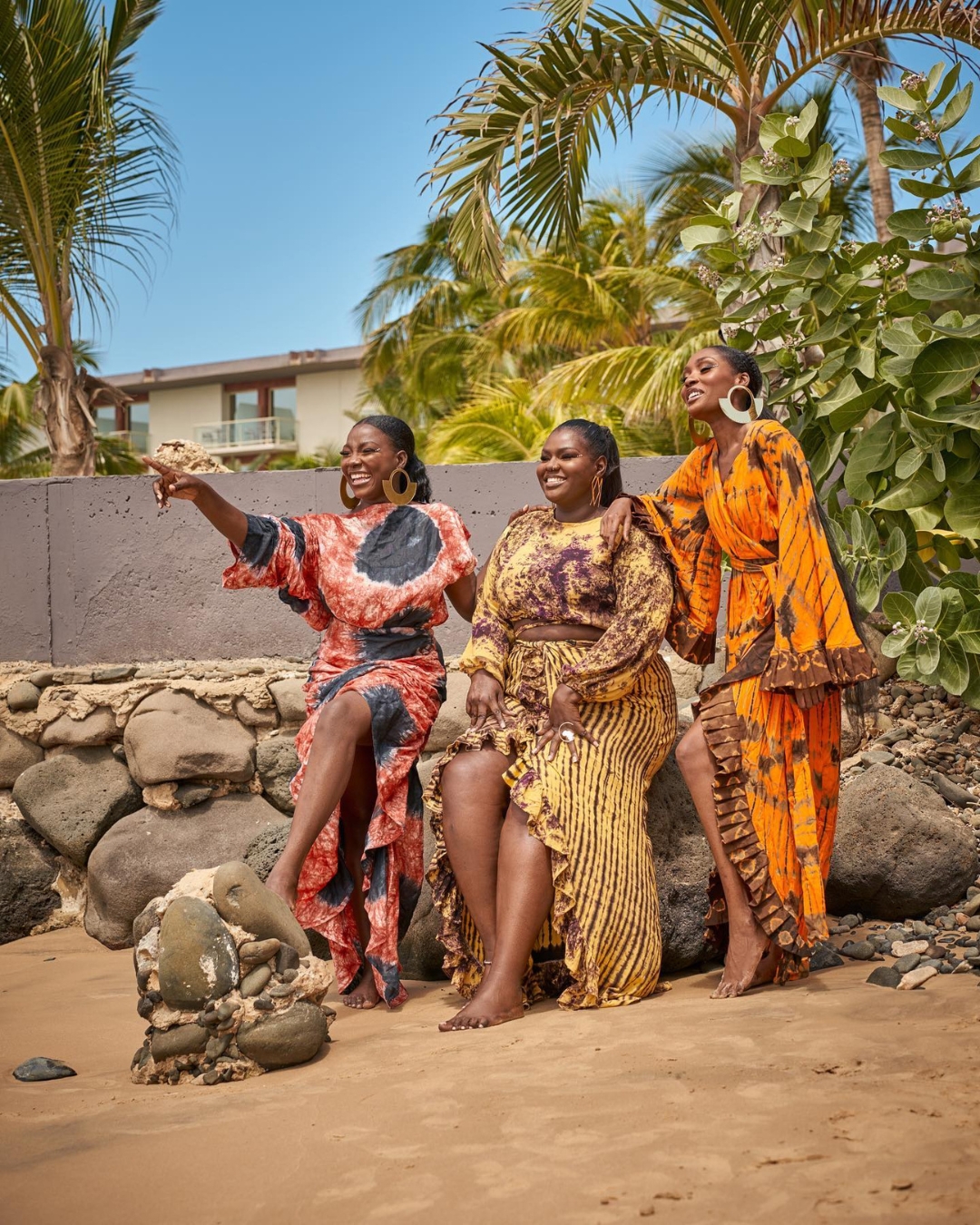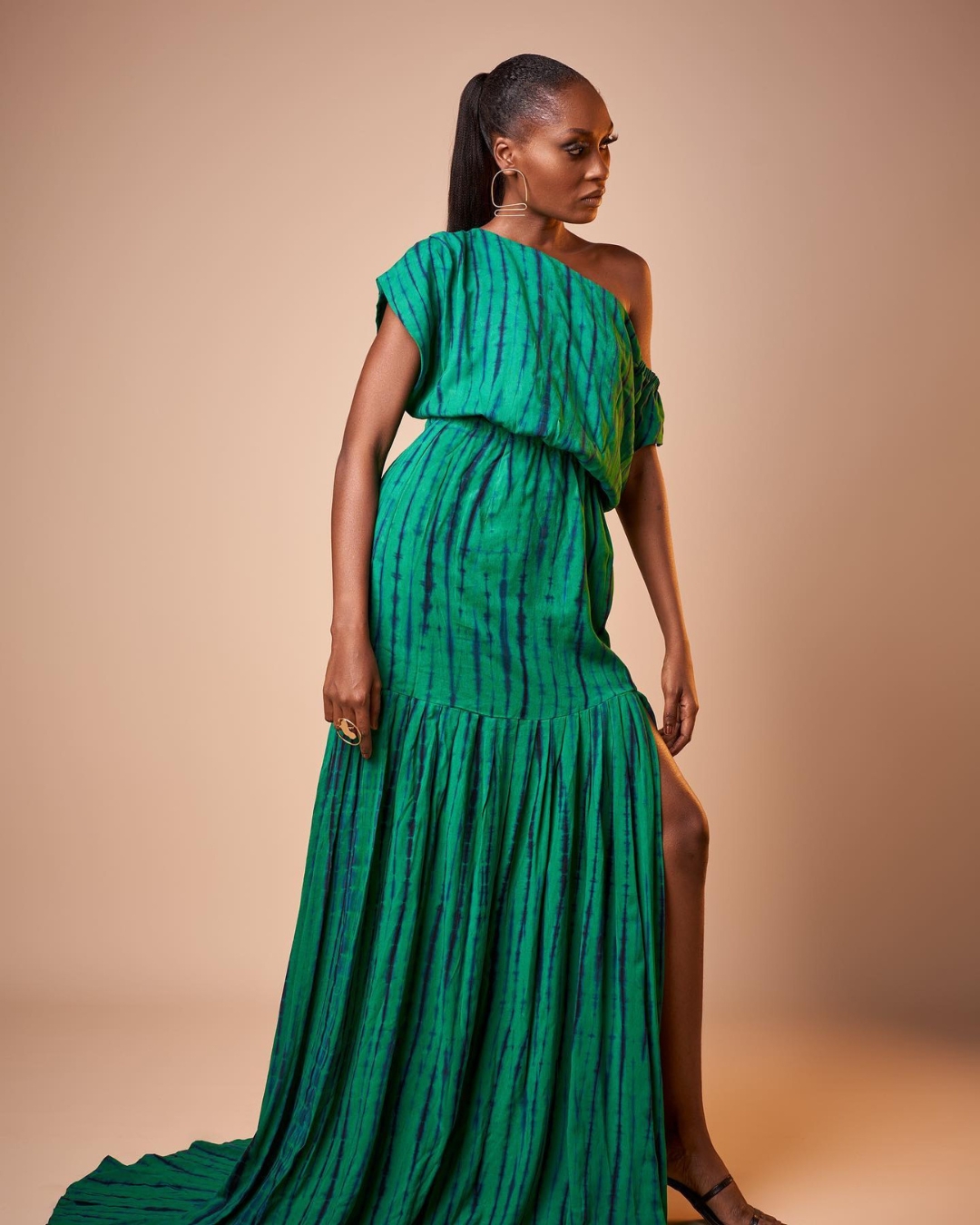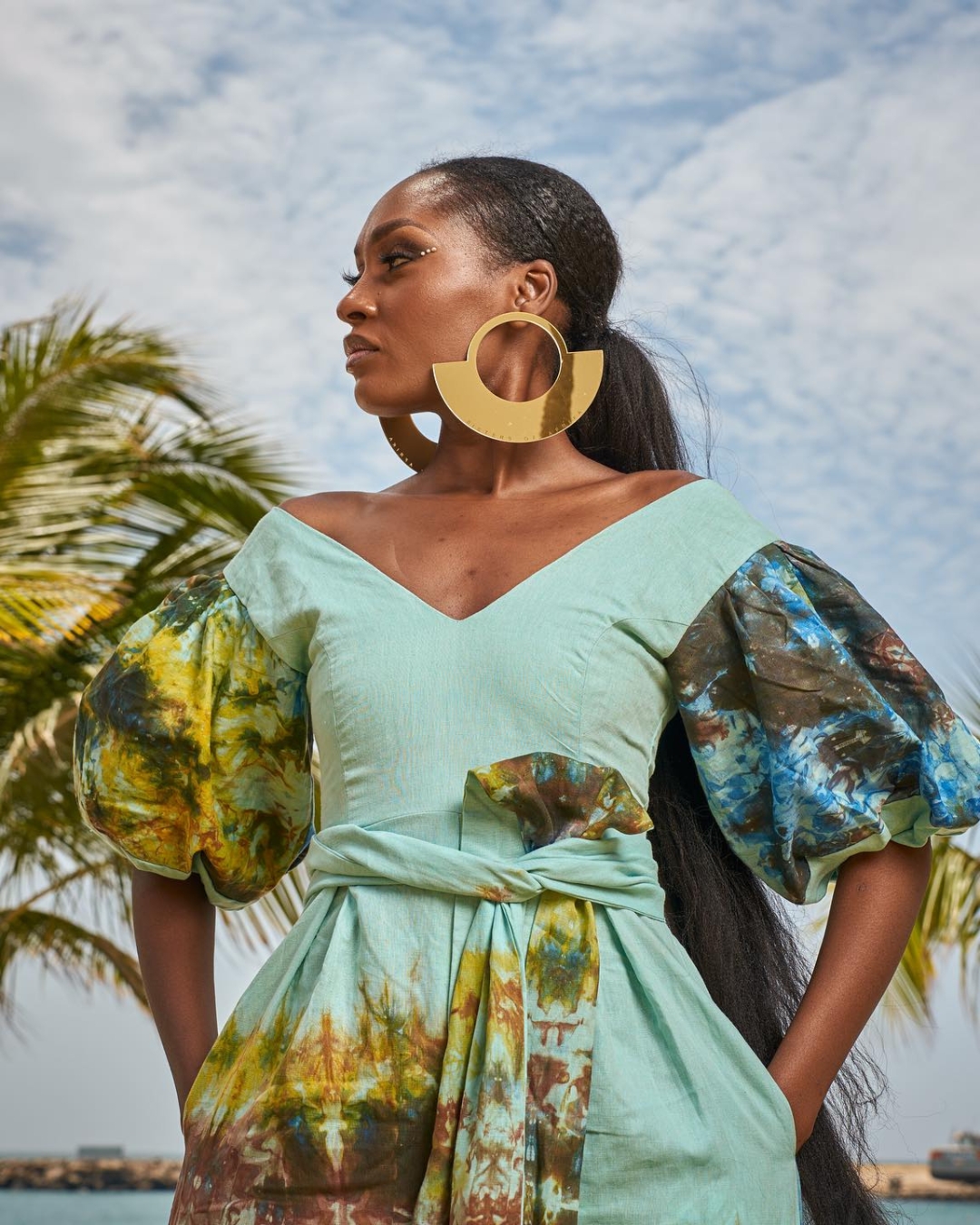Made in Africa: Promoting local craftsmanship
Mère Diouf and her team of dyers can be found in the town of Bargny, some thirty kilometers from Dakar, the capital of Senegal. Here, they have set up a veritable color laboratory. They have tested different substrates and dosages to come up with unique tye and dye products. The creative process involves several stages that have been repeated tirelessly for generations. First, the raw fabric is soaked in an initial dye preparation bath. Once dry,the fabric is knotted using specific techniques to create linear, circular or random patterns. Next, the knotted fabric is immersed in successive baths to create the alternating colors characteristic of tye and dye. The final step is to dry and iron the fabric in preparation for the appointment with the designer or fabric merchant who placed the order. Fabric processing workshops are usually open-air. The rhythm workload varies according to the season, and activity is concentrated in the dry season.
Dyers and designers work together to create unique, limited-edition variants. Several trials are carried out to validate a prototype before production is launched.
Hélène Daba, co-founder of the Sisters of Afrika brand, regularly travels between Dakar and Bargny to place fabric orders. Tye and dye is an integral part of the brand’s DNA, and the choice of this Senegalese artisanal know-how is an element of differentiation. This commitment to offering handmade collection pieces in limited series is a bold, high-end positioning choice that appeals to consumers beyond the continent’s borders. In May 2019, Beyoncé Knowles wore the brand’s iconic model, the “Flora”, a flamboyant wrap dress, also seen on Fatou Ndiaye the blogger with 140K followers on Instagram known under the pseudo BlackBeautyBag. These collaborations with influential personalities have a scope that goes beyond brand promotion. They help to promote Made in Africa throughout the world.

Sisters of Afrika
Made in Africa: a high-performance, responsible business model
Born in 2013, the Sisters of Afrika brand is distributed in concept stores located in major African cities such as Bamako and Abidjan. It also has a website that enables potential customers based outside the continent to acquire collection pieces made in Africa. In Dakar, the showroom/boutique/photo studio is located on Avenue Cheikh Anta Diop. The space is laid out in such a way as to enable measurements to be taken and alterations to be offered to customers. The outlet has also been designed to create content for social networks and the website. Limited series collections are regularly renewed.
Determining the volume to be produced does not follow a logic of mass consumption. Rather, it’s a question of resolving the equation between production capacity and the desire for uniqueness of a demanding fashion consumer.
The continent’s entrepreneurs have mastered the drops strategy, inviting potential consumers to anticipate the arrival of new products in stores, on social networks or via WhatsApp. The sold-out product is celebrated as a success. These brand owners don’t calculate the loss of revenue associated with an out-of-stock situation. They are happy to finance their working capital requirements. Every stage in the brand’s development is financed by the consumer. Investment funds for startups on the continent focus on digital, finance and agribusiness. The primary resources of fashion brand owners are therefore their own funds, invested in purchasing fabrics, recruiting a team, opening a workshop and/or showroom. Self-financing is the basis for business development. These entrepreneurs are experts in cost structure, adjusting their budget allocation according to cash flow. They are creative, pragmatic entrepreneurs who seek to create a high-performance, responsible business model. Each month, the challenge is to sell all the production offered as “ready-to-retouch”. We also have to respond to custom orders within deadlines that vary according to the complexity of the models requested. Quality of service is the keystone of this business, which has managed to retain the values of a local business. Every piece sold guarantees job security for the master cutters, dyers and all the other players in the chain. Over the months and years of development, regular income has enabled the fashion industry to develop locally.

Sisters of Afrika
Made in Africa: ahe value chain under construction
Mastery of the manufacturing process is central to the structure of fashion companies in Africa. It’s a constant creative challenge. The Sisters of Afrika brand recently launched its first collection with cotton sourced in Senegal. The huge cotton production plant is located in Kaolack, 200 kilometers southeast of Dakar. Hélène Daba travelled there to select the fabrics for her 100% made in Senegal collection, the first pieces of which are already sold out. To succeed in this challenge, it was necessary to invest in research and development and to work closely with the various players in the chain: local cotton growers, dyers, master weavers.
Brand owners on the continent are project managers. They skilfully accumulate mandates, sometimes thanking customers at the end of a fashion show, sometimes trying on garments with their loyal customers, sometimes checking on production in the workshops. Every day, they work to structure an industry that is still too vulnerable to external competition.
Imports of second-hand clothing and the availability of a wide selection of fabrics from all over the world are disruptive factors. In such an unfavorable context, entrepreneurs committed to promoting local craftsmanship are taking a step-by-step approach to made in Africa. They manufacture exclusively on the continent. They source materials from China, India or Turkey and transform them on the continent, thus developing a rich creative process combining traditional know-how and industrial materials. Slowly but surely, they are structuring a veritable value chain to develop local fabric production capacities and offer collections that are 100% made in Africa. A sought-after rarity at an affordable price that pays everyone involved in the manufacturing process a fair wage. The Made in Africa challenge guarantees the traceability of manufacturing processes, reassuring an increasingly discerning consumer.
Read also
- Luxury business in Africa: myth or reality?
- Acquiring Made in Africa collectibles: mission impossible?
- Africa Fashion: African creativity in the spotlight at London’s Victoria & Albert Museum


